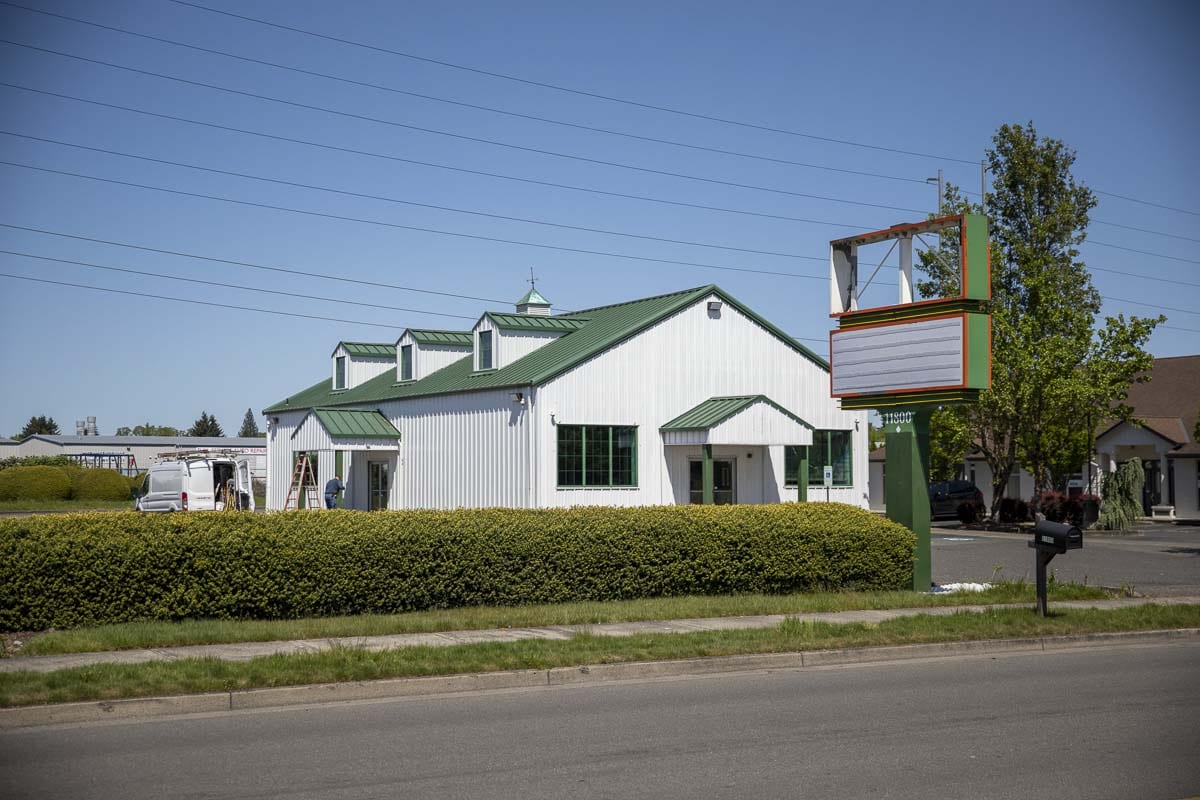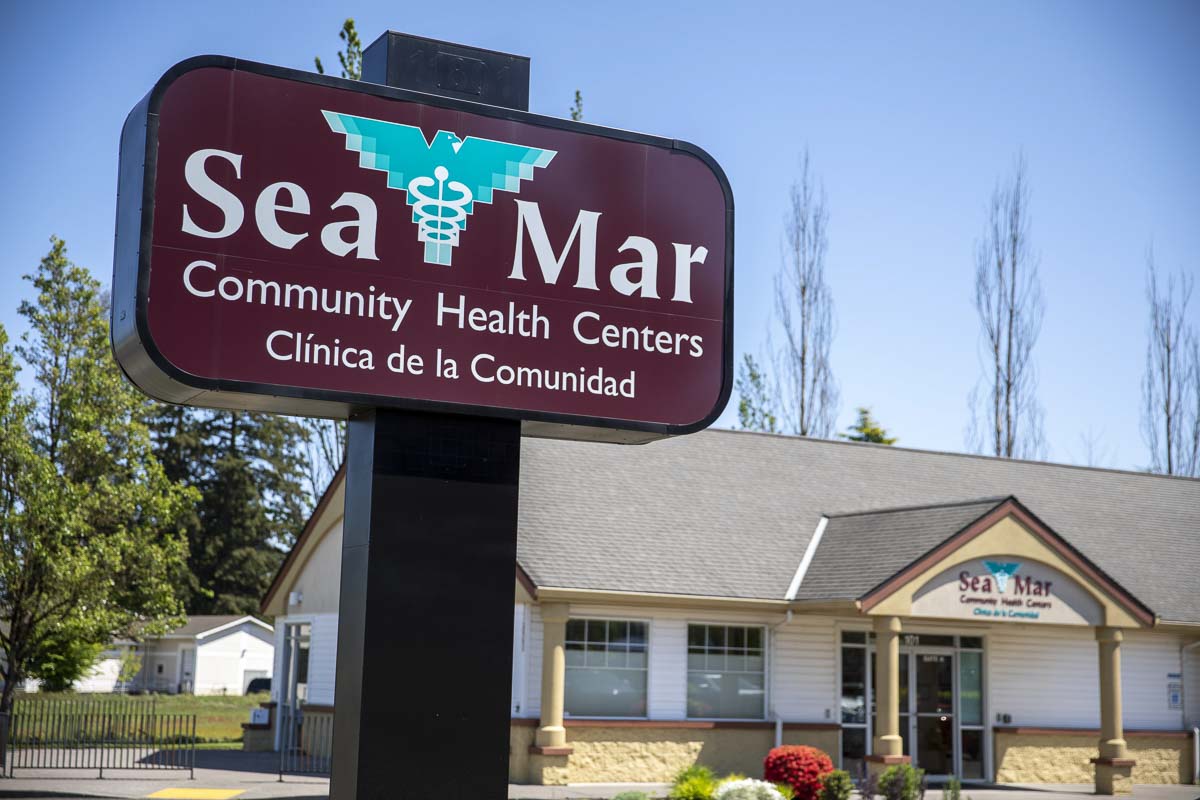The 3-2 vote included some harsh words between at least two councilors
CLARK COUNTY — A sharply divided Clark County Council on Wednesday voted 3-2 to adopt a temporary change to rules around where marijuana retailers and growers can be located.
The 60-day interim ordinance removes a requirement that retail locations be at least 500 feet away from a Substance Use Disorder (SUD) treatment facility or program.

Churches and SUD treatment facilities were two types of locations added by the county to places that marijuana retailers and growers must remain 500-1000 feet away from. That list also includes elementary and primary schools, public parks, community centers, child care facilities, public transit, and arcades for people under the age of 21.
Wednesday’s change came largely to accommodate the owners of one business, Orchards Cannabis Market, which obtained a state license to open a location at 11800 N.E. 65th St, along SR-500, north of the intersection with Fourth Plain Boulevard.
The business license was obtained by Loren Carlson, who also owns the Cannabis Country Store in Battle Ground.
In a letter to the council, Carlson expressed frustration with the process at the county level.
“It appears to us that Clark County has thrown every roadblock possible in our direction,” wrote Carlson, “and we have addressed each one.”
The issue centered around the council’s decision in July of last year to include churches and SUD facilities on its list of places marijuana retailers and growers had to stay at least 500 feet away from. That list also includes schools, libraries, child care centers, public parks, transit centers, and arcades.
Carlson says they agreed to buy the former Body Armor car accessories shop in August, contingent on license approval from the state Liquor and Cannabis Control Board. They did so after confirming that an SUD clinic run by SeaMar out of a family clinic nearby had been moved to another location.
The letter notes that approval from the state included a notification to the county, with 20 days for the county to respond with any objections. That time elapsed without any concerns being expressed.
Carlson says it wasn’t until early July, when they started the permitting process in the hopes of opening by January when cannabis sales would become legal in the unincorporated areas of the county, that they met their first roadblock.
“We were blindsided by Land Use telling us that we had to go through land use review prior to going through the permitting process,” Carlson wrote to the council. “We were the first one that they had accepted an application from, so it appeared the process was not yet complete.”
The inclusion of SUD facilities on the exclusion list was introduced by Councilor Temple Lentz, who admitted her frustration on Wednesday with the lack of progress made by the permitting department between council’s decision to remove the marijuana business moratorium in July of last year, and the time the ban officially was removed on Jan. 1 of this year.
“The permitting department was not ready to move forward,” said Lentz, who was clearly frustrated. “A lot of the advance work that we had intended for them to do in order to be ready for applicants on day one was, instead, directed to occur starting on day one.”

Lentz noted that the communication errors led the handful of applicants for marijuana business licenses to be unable to get information ahead of time, leading to confusion and miscommunication.
“That said, they nonetheless did make the purchase of a building without knowing if they had the authorization to move forward,” Lentz noted. “But I don’t believe that individuals should be held responsible for errors on the county’s part.”
For their part, Carlson says the difficulty largely came in proving that the SeaMar-run SUD facility had, indeed, been moved away from their location. They were eventually able to obtain written proof from the provider that the SUD treatment program was no longer being held there on Jan. 2, and then sent out notification to neighbors about the business opening.
Deputy Prosecuting Attorney Taylor Hallvik presented the council with four options. The first two were interim ordinances to extend the marijuana facility regulations for 60 days, either with or without the SUD facilities language. The other two would be permanent changes to the ordinance.
Ultimately, the council approved a 60-day interim change, eliminating the distance requirement for drug and alcohol treatment programs, with County Chair Eileen Quiring voicing the strongest opposition to the move. Councilor Gary Medvigy joined Quiring as the two votes against the interim change.
“The truth of the matter is we are doing this for one retailer,” Quiring said. “This retailer is going to be grandfathered in, and that is why we’re doing this whole thing.”
“Councilor Quiring, you and I don’t agree on very much,” responded Lentz. “We do happen to agree that this is occurring to benefit one individual, and I’m not happy about it.”
Despite her unhappiness, Lentz joined councilors Julie Olson and John Blom in voting to approve the 60-day interim change.
Olson indicated that the interim change was being done largely in response to Orchards Cannabis Market’s situation, but added that there have been other applicants also impacted by the rule.
“We made this decision from the dais, and I supported it at the time, but what we didn’t have in doing that is we didn’t have the ability to have staff really do the work to understand what the impact might be on applicants and business people in the community,” said Olson. “I think if we kinda take a step back, and work with staff and try to understand what the impact of this particular restriction currently is, and what it could be in the future, I think that would give the public comment period an opportunity to present itself, and it will give staff a chance to take a look at it.”
Medvigy, along with Quiring, voted against lifting the marijuana business moratorium, after he initially indicated he would support the interim ordinance. After hearing Quiring’s and Lentz’s comments, however, he appeared to change his mind.
“I know we have a problem with the definition of what’s active and what not, and what constitutes a treatment facility. As with all code, the devil is in the details” said Medvigy. “I wouldn’t want to open up this window of grandfathering in, even if it’s only one retailer.”
Medvigy’s about-face prompted a stern public rebuke moments later from Olson, who said she was “pretty shocked,” by his vote after conversations the two had had in recent weeks.
“So there’s certainly going to be, I think, an integrity issue with you going forward,” Olson said.
That prompted a rebuke from Quiring aimed at Olson, who said the outburst was not “proper.”
“Considering some of the conversations that have taken place over the last number of years, I don’t think that was out of line,” Olson responded.
Medvigy, who is running for re-election this year, called Olson’s comment “churlish,” and “immature.”
“I try to keep an open mind throughout these proceedings and, quite frankly, the comments of Temple Lentz were very convincing to me that I should stick with my original vote,” Medvigy added, saying he would have voted for a second option to fix some errors, but keep the 500-foot barrier in place at least temporarily.
The council will take up the interim ordinance again within the next 60 days to determine if the changes should be made permanent, or if added language can fix the situation that created the confusion for Carlson and Orchards Cannabis Market.




